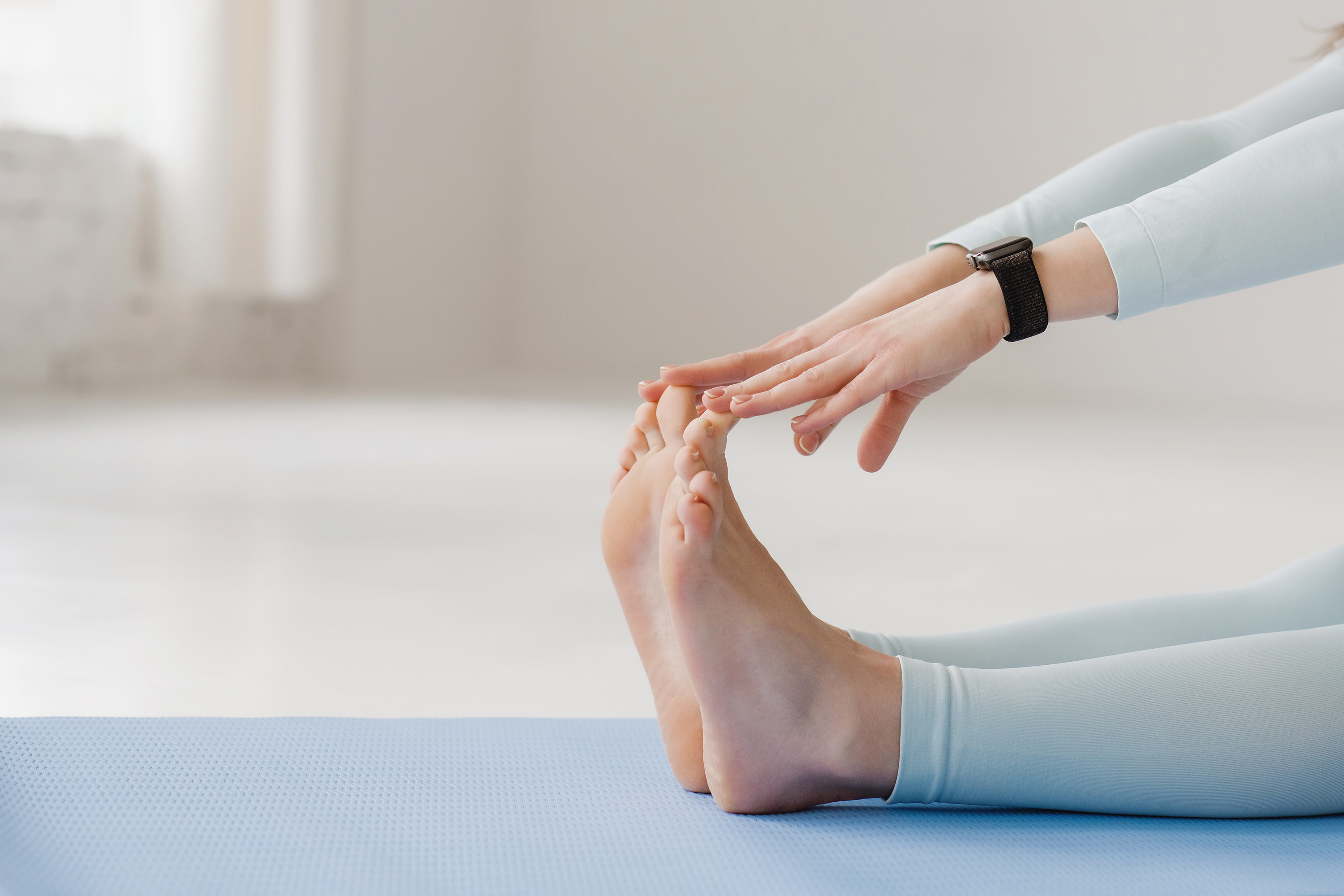Stress unfortunately is almost impossible to completely avoid. But luckily there some super effective ways to manage and reduce stress in a healthy and completely natural way.
Life can be quite the wild ride. The ups and downs are inevitable, but we need to pay attention when things begin to feel out of control and out of balance.
Stress is bound to enter our lives at some point or another. Especially in this unpredictable modern world we all call home. But chronic stress can wreak havoc on the body, making you more susceptible to depression, pain and illness.
Please note that I fully understand that in some cases these techniques may not be what you need if the stress and anxiety is severe enough. Please consult a professional if you have questions or need further help.
Why Stress is so Dangerous?
Stress is a natural part of life. It’s common, it’s normal so there’s no need to worry about it right?
WRONG!
Although that’s very true that is common and it is a part of life, learning ways to manage and cope with stress will improve your health and overall quality of life.
Chronic stress can lead to some pretty serious health issues so finding ways to manage it is necessary!
What is Cortisol and how is it Connected to our Stress Levels?
Cortisol, also referred to as the fight or flight hormone, plays a crucial role in understanding why stress can be so dangerous if it’s not managed properly.
Cortisol is a hormone that is released when you are in a stressful or dangerous situation. It works by keeping us on high alert and increasing our energy levels so we are more equipped to handle the event.
So it’s important to note that it’s a hormone that’s necessary for our survival. It allows us to respond to dangerous or stressful situations. Once the situation has passed the Cortisol levels should decrease since we are no longer reacting to the event.
But if the Cortisol levels don’t decrease, or if the situation that’s causing the stress doesn’t go away, the Cortisol levels can increase to unhealthy levels.
This can cause all kinds of negative side effects such as high blood pressure, weight gain, heart issues. The list goes on! And it’s a pretty scary one!
When our cortisol levels are out of whack we can experience:
- Trouble sleeping
- Gut health issues
- Skin issues
- heart issues
And this is only just the beginning which is why it is so important to find natural and healthy ways to help regulate and reduce stress early on.
And that’s exactly what we’re here to talk about today! So with that, let’s get to it!
Holistic, Natural ways to Manage and Reduce Stress

1. A Proper Sleep Schedule
Did you know that sleep naturally reduces cortisol levels in the body? Just another reason that getting the right amount of sleep is super important for our total health and well-being.
It’s recommended that we get between 7-9 hours of sleep each night. Make sure you are creating a sleep routine that works best for your schedule, but also allows you to get the adquite amount of sleep you need each night.
This will help keep all hormones regulated and balanced. Including those that cause anxiety and stress.
Stress can make falling asleep and staying asleep that much harder. Which is why developing a routine sleep schedule is so important to help get you back to catching all those much needed z’s.
How to Create a Sleep Routine to Reduce Stress
Begin by deciding what time you need to be in bed by to get the recommended 7-9 hours.
Then start slow!
Over the course of the next couple of weeks begin by gradually going to be bed a little earlier each night until you reach your goal. Start by going to bed 10-15 minutes earlier for a few nights in a row. And then 10-15 minutes earlier than that to help make the transition easier.
2. Routine in General
Speaking of routines…
A healthy daily routine will help you stay on track with your health and wellness goals while at the same time helping you to manage and reduce your stress levels.
Things like eating a well balanced diet, daily exercise, journaling, reading etc. You can create a routine filled with activities that you love, are good for you and also help keep stress at bay. Check out this post here: A Magical Morning Routine to help get you started.

3. Lower Caffeine Intake
For many of us that small caffeine pick-me-up in the morning is sometimes our main reason for getting out of bed. I look forward to a delicious glass of cold brew each and every morning.
Small amounts of caffeine can help give you that extra little boost to get going and can help temporarily lift your mood. However, consuming larger amounts of caffeine can have some pretty negative side effects.
Increases in caffeine will cause you to crash later on. When you crash you feel tired and groggy leading you to crave more caffeine to help get you out of the slump. Then you reach for that mid day caffeine boost only to crash again and the cycle continues.
These constant ups and downs will begin to disrupt your sleep cycle and prevent you from being able to fall asleep and stay asleep throughout the night. And as I mentioned earlier, lack of sleep is directly related to
I know it can be hard not to reach for that midday coffee when you’re in need of that extra boost to get you through. But next time try to reach for something equally tasty, but without the caffeine.
Try decaffeinated tea or, if coffee is still what you find yourself craving, I like to reach for MUD/WTR or Clever Blends. These are both healthier alternatives with far less caffeine. They offer several different flavor options so it will be easy to find one you love!

4. Gentle Yoga
A slow and gentle yoga practice is a great way to help reduce stress and relax and unwind from the day.
Yoga combines movement with breath work that together help encourage total mental and physical relaxation. It’s a wonderful way to help stretch and decompress your body and your mind all at the same time.
I encourage you to think about incorporating a gentle yoga flow into your evening routine. It’s the perfect way to signal to your body that it’s time to begin to unwind for the day and prepare for bed.
Stretching and gentle breath work can be the most relaxing way to settle down for the night.
And it doesn’t have to be very long. Even 15-20 minutes is enough time to feel the incredible benefits of a slow flow.

5. Deep Breathing Exercises
Here’s a strange little tid bit I learned a while ago. I read an article that said Americans are getting less oxygen because we are taking shorter and more shallow breaths than our ancestors. So in turn we are actually receiving less oxygen than we use to. How weird is that!
But did you know that less oxygen can have a direct effect on our stress levels? It’s all connected!
Deep breathing exercises are a great way to help increase oxygen intake. By breathing slower and more deeply you are signally to the nervous system to relax and calm down.
Deep Breathing exercises also help us come into the present moment. Forcing us to focus on the counting of each breath instead of the negative thoughts swirling in our head. We become disengaged with what’s going on around us. Our heart rate begins to slow creating a sense of calmness and therefore lowering our stress levels.
Check out this video for some quick and effective breathing exercises that you can try now!
6. Find Your Zen.
Meditation may be great for some people but I know not everyone finds it helpful. My suggestion would be to try out a few calming techniques and see what works best for you and what you prefer. Some ideas you might want to try include:
Gardening: I personally love repotting plants. Getting my hands dirty in the soil is a great stress reliever for me. If you have a garden maybe planting some new flowers or pulling weeds helps you find your zen.
For others maybe it’s calligraphy, water coloring, star gazing, model building, puzzles or pottery. Sometimes you need to try out a few things first to see what you like, what interests you and what you find to be the most relaxing.
You might also be interested in Why You Need to Find Your New Favorite Hobby
To Wrap it Up
Learning ways to reduce and manage stress is so important finding positive, healthy outlets to release the built up negative energy. By finding hobbies or passion projects that you enjoy, you can allow yourself to unwind slowly and naturally.
There isn’t a one size fits all remedy when it comes to reducing stress. Different things work for different people and it may take some time to find what works best for you. But don’t give up! Keep experimenting and see what you come up with. The right stress reliever is out there. I promise you. You just don’t need to discover what that is.
By trying new things you’ll discover new hobbies and passion projects that you enjoy, and will also allow you to slowly and successfully lower your stress.



Outdoor Fitness Routine-The Incredible Benefits and why You Need One Now! - An Hour of Secrets
[…] outside alone can greatly improve your mood and overall mental well-being. It helps in reducing stress, and anxiety levels becomes more manageable when you’re surrounded by greenery and fresh […]
The Perfect Summer Morning Routine. Rise, Shine and Energize Vibrantly - An Hour of Secrets
[…] in mindfulness meditation can help reduce stress, anxiety, and negative thinking […]